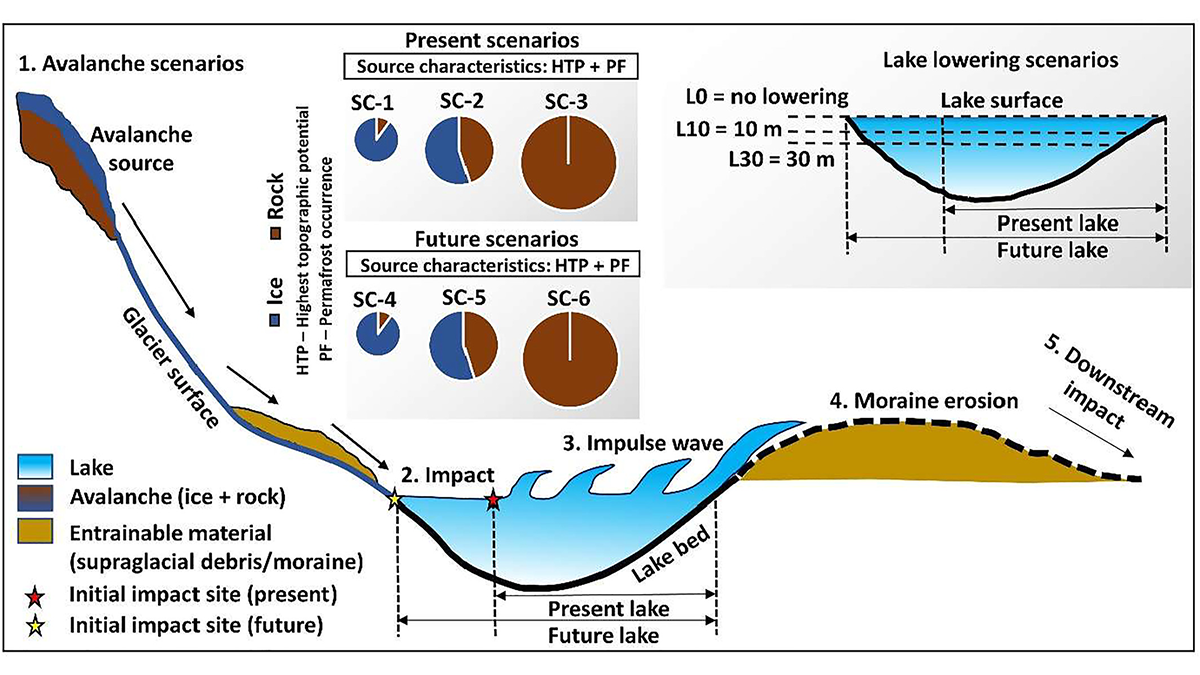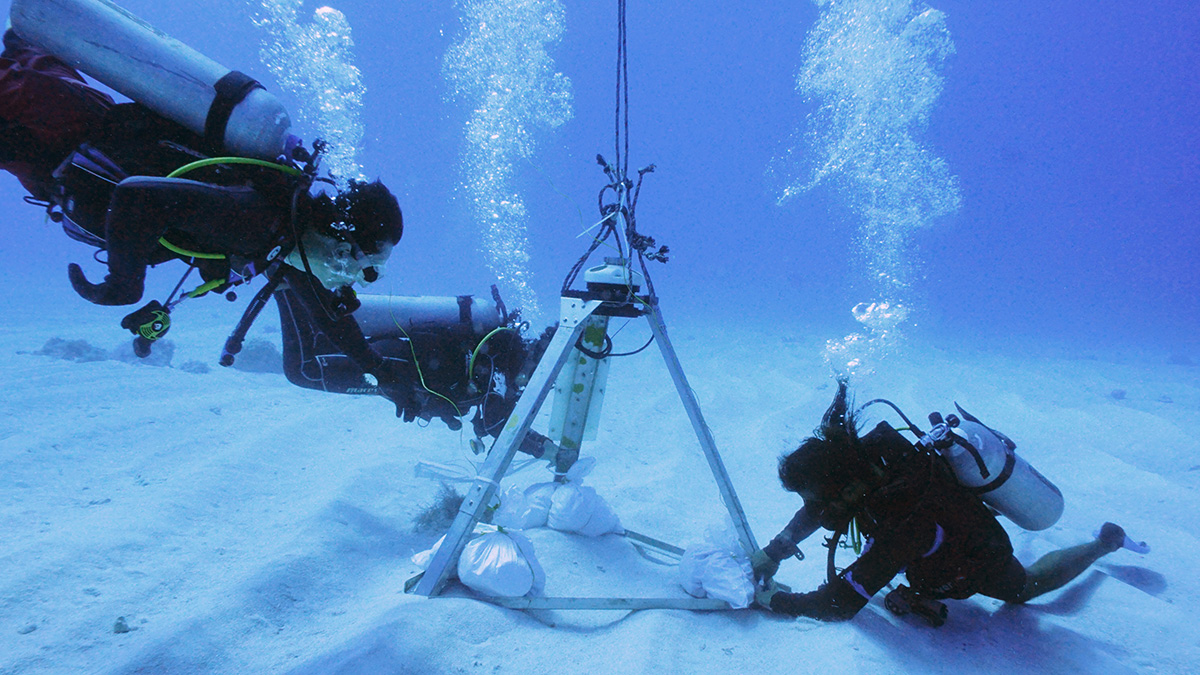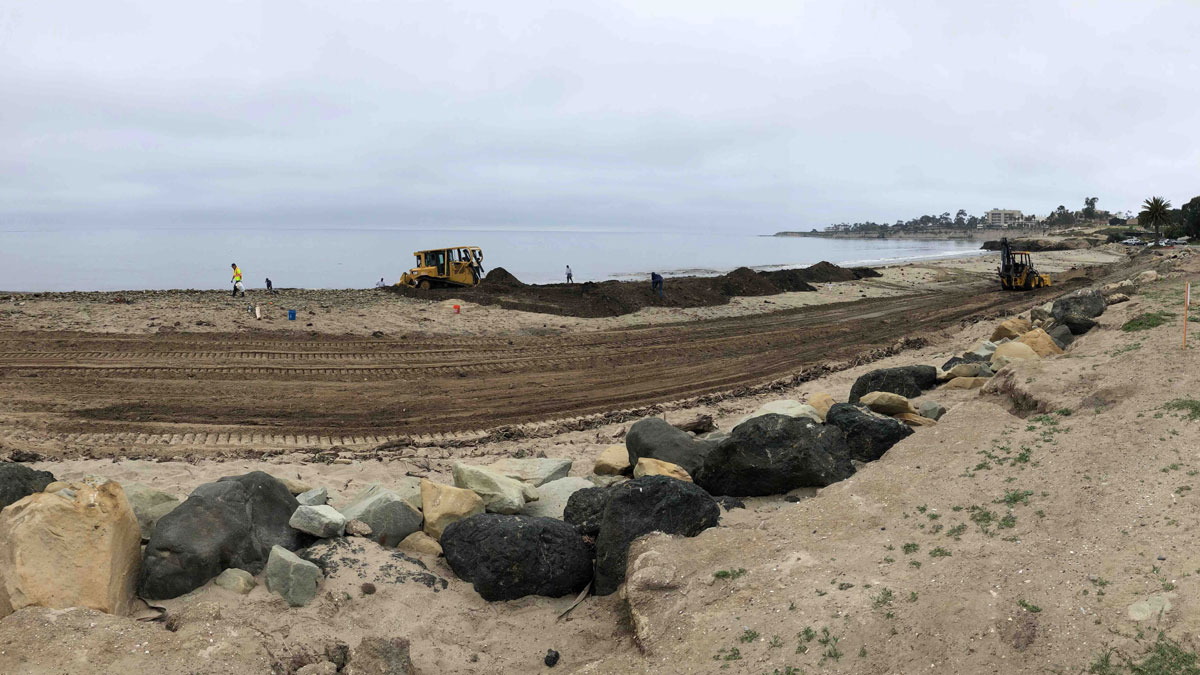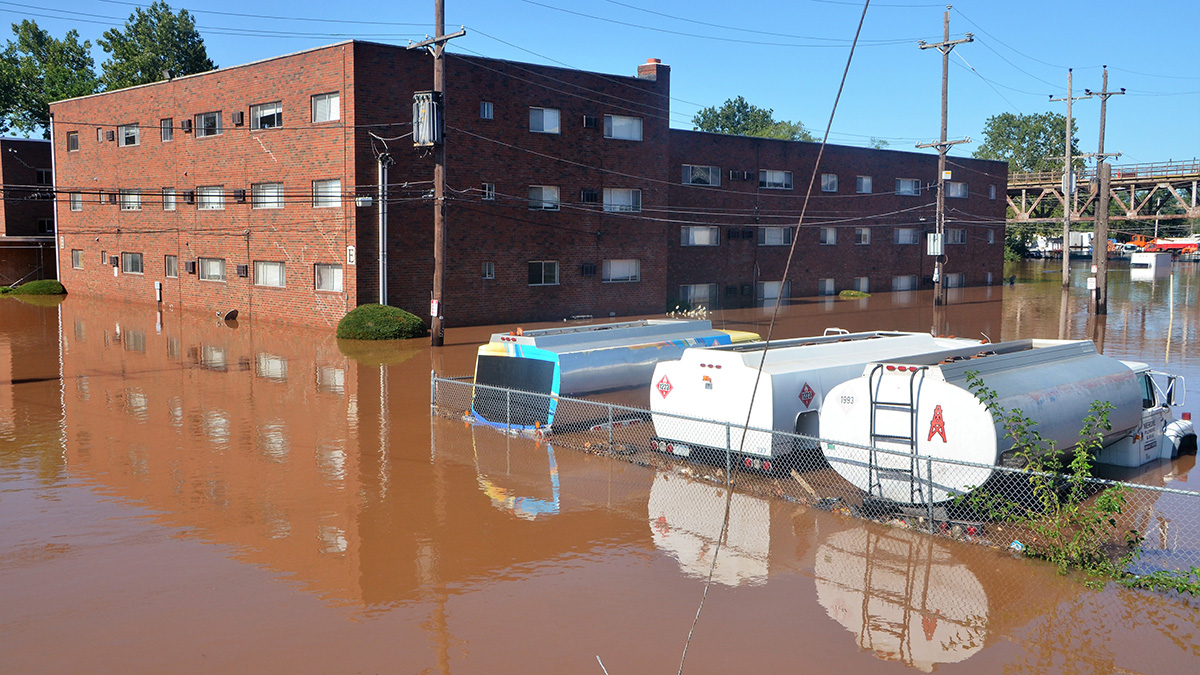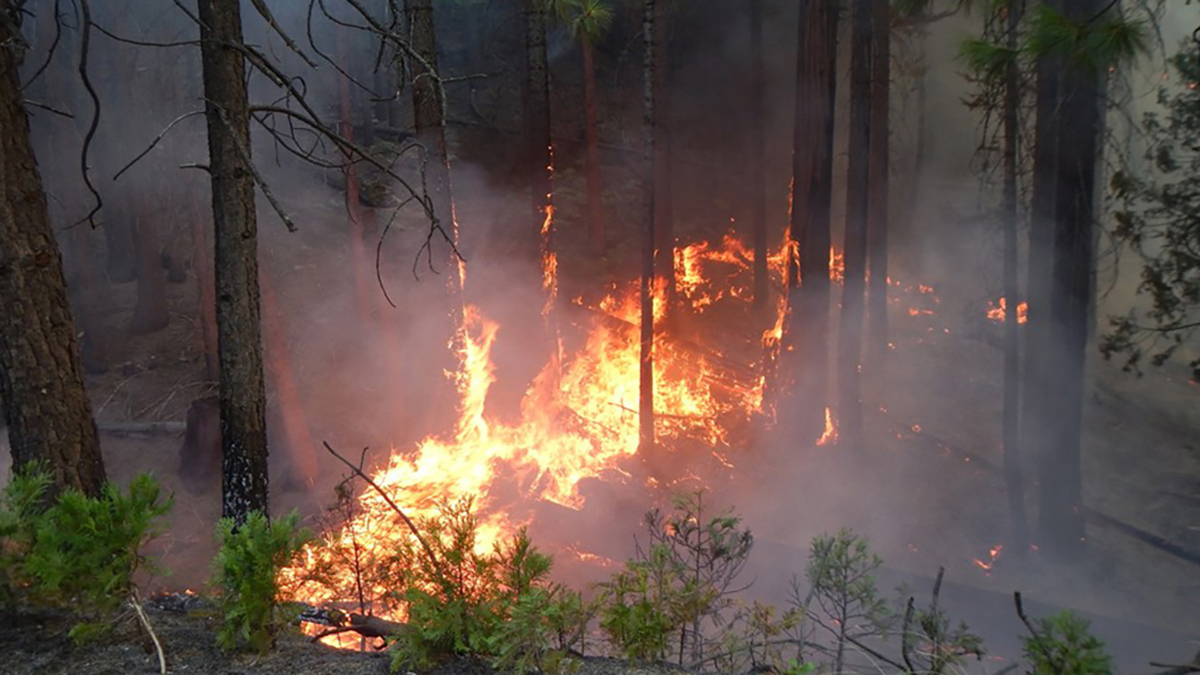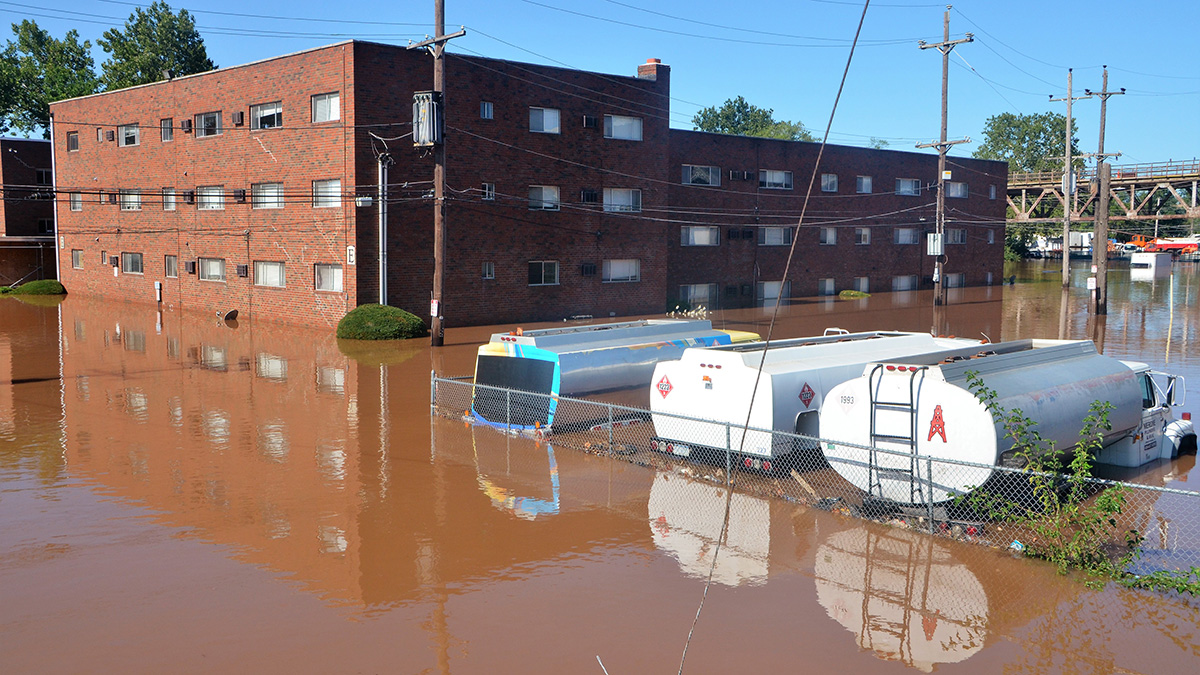Scientists are working together to establish a standardized international scale for measuring and reporting the intensities and impacts of earthquake shaking.
disaster management
Felt Reports Could Shake Up Earthquake Response
Firsthand accounts of earthquake impacts could aid in identifying people who require help as well as increasing safety in some areas.
Back-to-Back Hurricanes Could Become Common by 2100
New research shows back-to-back hurricanes could strike the United States every few years by 2100.
Artificial Lake-Level Lowering Alleviates Floods in the Himalayas
A new model combining future permafrost degradation and related avalanches demonstrates that artificial lake-lowering could significantly reduce the risk of glacial lake outburst floods.
Scientists Improve Hurricane Resilience in the Colombian Caribbean
Scientists are using acoustic sensors to collect data and improve hurricane preparedness and coastal resilience in the archipelago of San Andrés.
Managing Mudslide Debris After Fires
California officials faced a conundrum in dealing with mudslides after the Thomas Fire.
New Landslide Reporting Tool Uses Social Media and AI
The tool extracts landslide information in real time, which could advance landslide research as well as disaster response.
U.S. Fires Quadrupled in Size, Tripled in Frequency in 20 Years
Changes including intensifying drought, expansion into burnable land, and an increase in human-caused ignitions have led to a shift in fire patterns.
ICON Principles Underused as a Natural Hazards Research Tool
Scientists identify barriers to and opportunities for applying integrated, connected, open, and networked research strategies to natural hazards studies.




